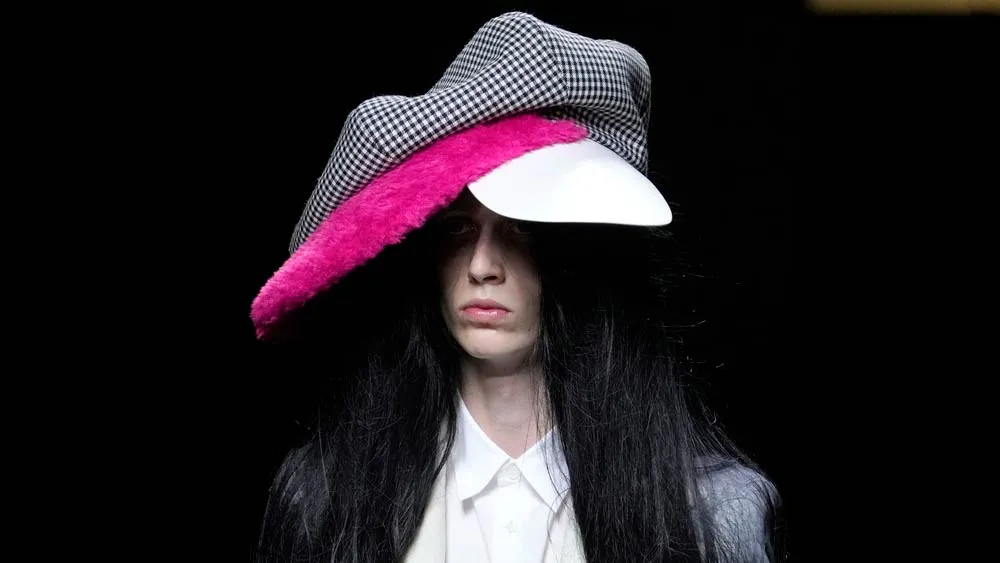February 18, 2013
Migrating Archives: LGBT Delegates from Other Collections
Chris Sosa READ TIME: 4 MIN.
A new and unusual exhibition has landed at the GLBT History Museum. "Migrating Archives: LGBT Delegates from Other Collections", despite a cumbersome, confusing title, is original in conception and illuminating in its execution. It brings together the personal histories of queer individuals, most of them deceased, that have been stored in the archives of LGBT organizations based in multiple countries. The US, Hungary, Belgium, England, Italy, South Africa, Australia and the Philippines each selected one or two people, and contributed materials about them to a show that's more complicated to describe than to enjoy. The project is the brainchild of E.G. Crichton, the museum's artist-in-residence and an art professor at UC Santa Cruz, who has generated a novel approach to sharing how LGBT people have lived in different parts of the world. What's displayed in San Francisco is less than half of an extensive installation she designed for a conference in Amsterdam, where 23 groups provided biographies, news clippings, journal entries, excerpts from scrapbooks and first-person accounts, along with descriptions of their respective archives.
Crichton writes that this cross-border concept, a vehicle for putting archival collections "in motion," is especially important "for people whose traces are so often erased by [their] biological families, omitted from official histories, or just lost." Her show is an attempt to make the forgotten or ignored visible, though "one or two remain anonymous, reflecting the fate of so many LGBT people whose names have disappeared" from the record. (The well-known get their moment in the sun, too.) She has found an ingenious way to rescue life stories that would otherwise languish in musty backrooms and file cabinets, and usher them into the open.
Migrating is comprised of a series of graphic wall panels with printed photos, testimonials, ephemera and text, lined up next to one another like unfurled banners at the United Nations. You can jump in and start perusing whatever catches your eye. I gravitated toward the National Archives in London, a repository of documents related to Oscar Wilde's trial and conviction for "gross indecency" in 1895, and the time he spent in prison that ruined his health and broke his spirit. (Homosexual acts between men were a crime in Britain from the 16th century until the 1960s.) After a year and a half in jail, he composed a desperate and eloquent plea for humane treatment and relief from "a system so terrible that it hardens their hearts whose hearts it does not break, and brutalizes those who have to carry it out no less than those who have to submit to it." A copy of the petition, written in Wilde's hand, can be seen here.
If the National Archives is the establishment big boy, Rukus! Federation, also based in the U.K., is its wild little brother and the new kid on the block. With a focus on black GLBT artists and culture and what it calls "lived experience," it collects moving images and recordings, posters and pamphlets in addition to producing club events, screenings, workshops, theater performances and concerts.
Born in Brussels in 1918, Suzanne De Pues was an activist with a rocky trajectory. Initially troubled by her attraction to women, she discovered gay/lesbian nightlife in the 1930s, adopted an alias, Suzan Daniel, that she took from the beautiful French film actress Danielle Darrieux, developed a fondness for male attire, and became Belgium's youngest film critic. After founding her country's first gay and lesbian association, she was effectively banned by its gay members, who preferred a private all-male club. In pictures, she resembles a silent-film star, lighting a cigarette, flirting with the camera, and looking smart and sporty in a double-breasted jacket and hat.
Queer archives, says Crichton, "are an international phenomenon found in unexpected places." Unexpected, that's for sure. Yes, there are three such archives in London, but Hungary? Really? Set up in 1999, the Labrisz Lesbian Association, the first and only such group in that country, offers up the tale of Sandor/Sarolta Vay, a Hungarian journalist and writer at the turn of the 20th century. Born a biological woman into a family of Hungarian aristocrats, but identified and socially accepted as a heterosexual man, Vay, a prominent literary figure, was a member of the male gentry, having affairs and long-term relationships with women, though his situation presented the practical and psychological complications one might imagine. The black-and-white pictures of him/her dressed in a suit are quite persuasive, but when her sex was uncovered in prison, she was dispatched to an asylum. Certainly not the only female to turn to cross-dressing and gender-bending to escape the oppressive fate that befell dependent women of the era, it was the only avenue open for a lesbian.
Crichton, who plans to expand the project and perhaps set up a website, hopes the show will stimulate discussion. "Queer history is everybody's history," she says. "It belongs to everyone." (Through June 30.)







